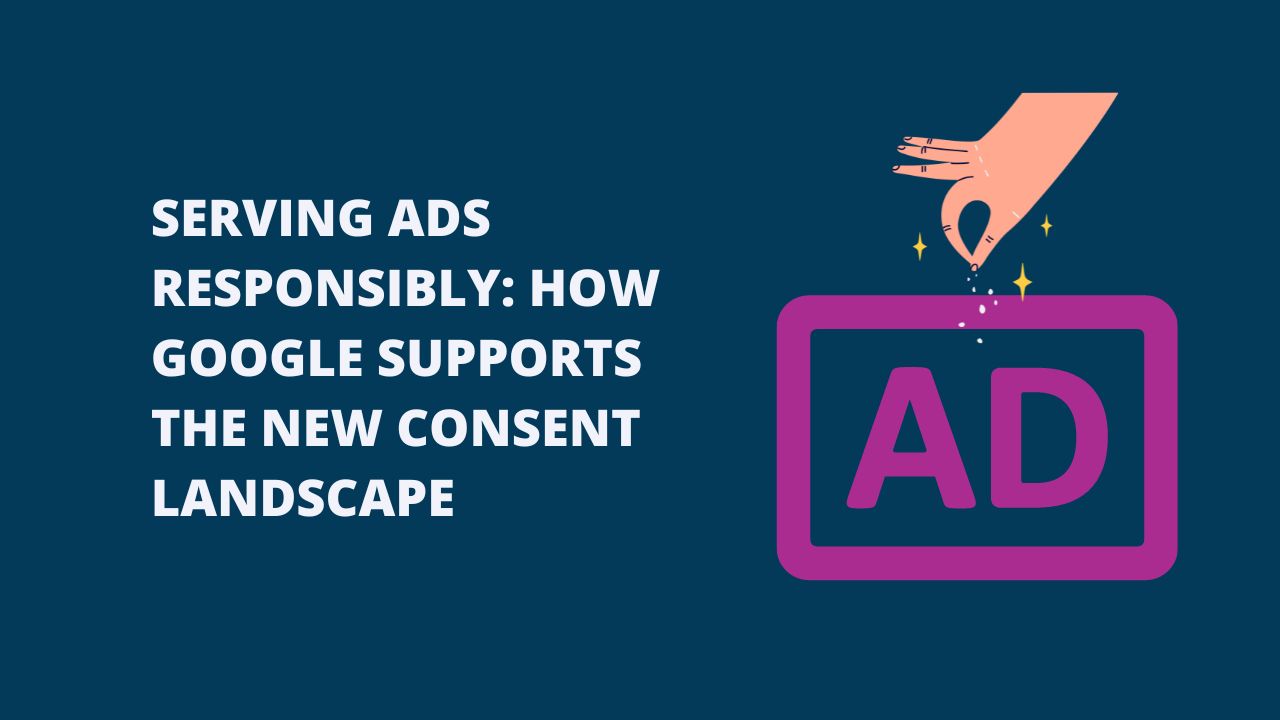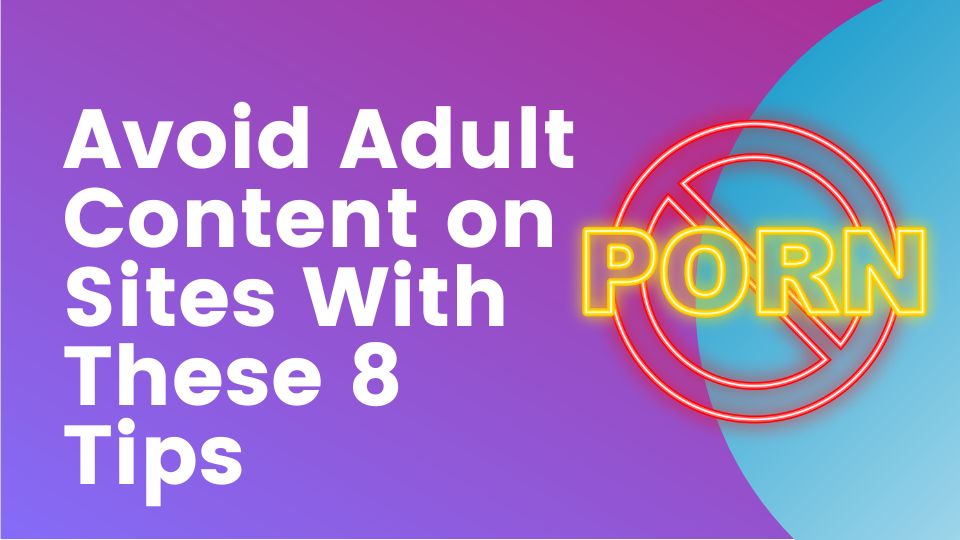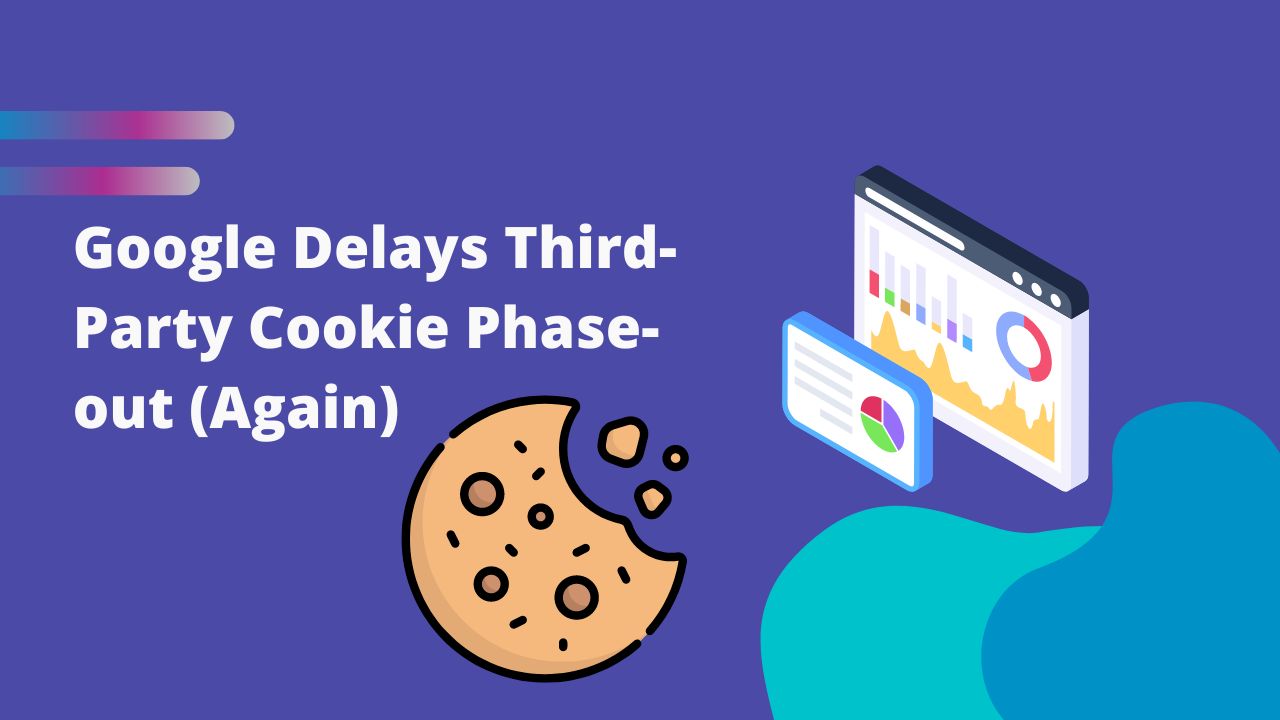
Ever wondered how online ads work and how your data is used to serve them? If so, you’re not alone. Data privacy and responsible ad practices are top of mind for many internet users today. As one of the largest digital advertising companies, Google takes this seriously. That’s why last year, we integrated our ads systems with a new industry standard for consent in Europe called the Transparency and Consent Framework, or TCF for short. The TCF helps ensure that ads are only served to people who have actively consented to see them. It’s supported by many ad tech companies and the consent management platforms used by Google’s publisher partners. Read on to learn more about how Google is helping build a responsible ad ecosystem that puts users and their privacy first.
IAB Europe created the Transparency and Consent Framework (TCF) to help companies like Google provide relevant ads to users in a responsible way. The TCF works by giving you more control over how your data is used for advertising.
When you visit a website or app that participates in the TCF, you’ll be asked to consent to how your information can be used to show ads. You have the choice to consent to different purposes like:
The choice is yours. Through the TCF, you’re empowered to select the level of ad personalization you’re comfortable with if any at all.
Your consent is then passed to companies like Google to help determine which ads you see. We use the TCF to understand your preferences and ensure we serve your ads responsibly and transparently.
The TCF also allows you to withdraw your consent at any time through the CMP on the website or by adjusting your settings on Google. We aim to provide you with relevant ad experiences while respecting your privacy. The TCF helps make that possible.
With the TCF in place, you have more control and visibility into how your data shapes the ads you see daily. And for Google, it helps us continue providing valuable ads to users in a way that aligns with evolving privacy laws and user expectations. Overall, the TCF benefits both users and businesses alike.
When Google integrated with the IAB Europe’s Transparency and Consent Framework (TCF) in 2020, we ensured that our ad systems provide transparency and choice for European users. This framework is now supported by many companies in digital advertising, including the Consent Management Platforms (CMPs) used by lots of Google’s publishing partners.
Our integration with the TCF is an important step, but more work must be done to strengthen user trust in digital advertising. Google remains committed to providing all its users transparency, choice, and control. By collaborating with industry partners, we can progress toward a future where personalized ads and privacy can coexist.
To learn more about the industry, we have PubGuru University. We take a comprehensive approach, building your knowledge piece by piece. Our beginner courses cover the basics of the ad tech ecosystem and progress to more advanced training on optimizing display, video, mobile, and programmatic advertising.
Integrating with CMPs allows publishers to continue serving personalized ads to users who have granted consent. This means publishers can maintain an ad revenue stream from programmatic and open auction demand. According to studies, most users opt-in to data usage when given a choice via a CMP.
CMPs handle the technical implementation of the TCF, meaning publishers don’t have to build their consent management systems. CMPs also stay up-to-date with any changes to regulations or framework specifications. This reduces the operational burden on publishers and allows them to focus on their core business.
CMPs provide a consistent user experience for granting or denying consent across websites and apps. This improves the overall experience for users. CMPs also often offer publishers the ability to customize the look and feel of the consent prompt to match their brand.
By integrating with CMPs and the TCF, publishers ensure they are compliant with current regulations like the GDPR and well-positioned for any future changes. The TCF is designed to be flexible and expandable to support new laws and requirements as they come into effect.
Overall, integrating ads systems with CMPs and the TCF provides publishers various revenue, operations, user experience, and regulatory compliance benefits. CMP integration helps future-proof publishers’ businesses while respecting users’ rights and privacy.
As an advertiser, you now have access to consent data from users in the EU and UK provided by CMPs. This data allows you to understand users’ consent preferences to serve them relevant ads. Here are a few ways you can utilize this data:
CMP data provides a wealth of insights to enhance your advertising. However, using this data responsibly and respecting users’ privacy is essential. Only target users who have actively given consent, and avoid making assumptions beyond their consent. Using CMP data properly can build more relevant ads and stronger customer relationships.
Get a single source of truth for your ad performance with PubGuru Dashboard. Tired of logging into multiple platforms to track your campaign data? Our unified reporting combines performance metrics from all your ad networks, bidders, and consent rate into one easy-to-use dashboard. Get a comprehensive view of how each ad network and bidder performs for your business.
The digital advertising industry will continue evolving to match people’s expectations around privacy and data use. Google is dedicated to adapting our systems and partnerships to meet new regulations as they arise. Some areas we’re focused on include:
As part of the protection of your ad revenue and peace of mind for your advertising program
You can also integrate Traffic Cop Solution. Our solution eliminates the hassle of identifying and blocking bots and scrapers, so you can confidently advertise. We’ll monitor traffic quality, implement new blocks and provide reporting – freeing you up to focus on growing your business. With CMP and traffic cop, it’s a clear way to protect your business in the long run.
By working together, we can meet the challenges of this new era and build an ad ecosystem that respects people and supports an open web. The road ahead may not always be clear, but we can navigate it with good faith and shared purpose.
So there you have it. Google is committed to building a sustainable ad ecosystem that respects user privacy. By integrating with industry standards like the TCF, we’re progressing toward a future where people feel in control of their data and how it’s used. But there’s still more work to be done. We’ll keep improving our systems, educating our partners, and advocating for strong privacy laws. Because at the end of the day, it’s about doing right by you – the people who use our products and support an open web. You deserve transparency, choice, and control. And we aim to provide that. So, let’s get it started here!

With over seven years at the forefront of programmatic advertising, Aleesha is a renowned Ad-Tech expert, blending innovative strategies with cutting-edge technology. Her insights have reshaped programmatic advertising, leading to groundbreaking campaigns and 10X ROI increases for publishers and global brands. She believes in setting new standards in dynamic ad targeting and optimization.

Paid to Publishers
Ad Requests Monthly
Happy Publishers



10X your ad revenue with our award-winning solutions.